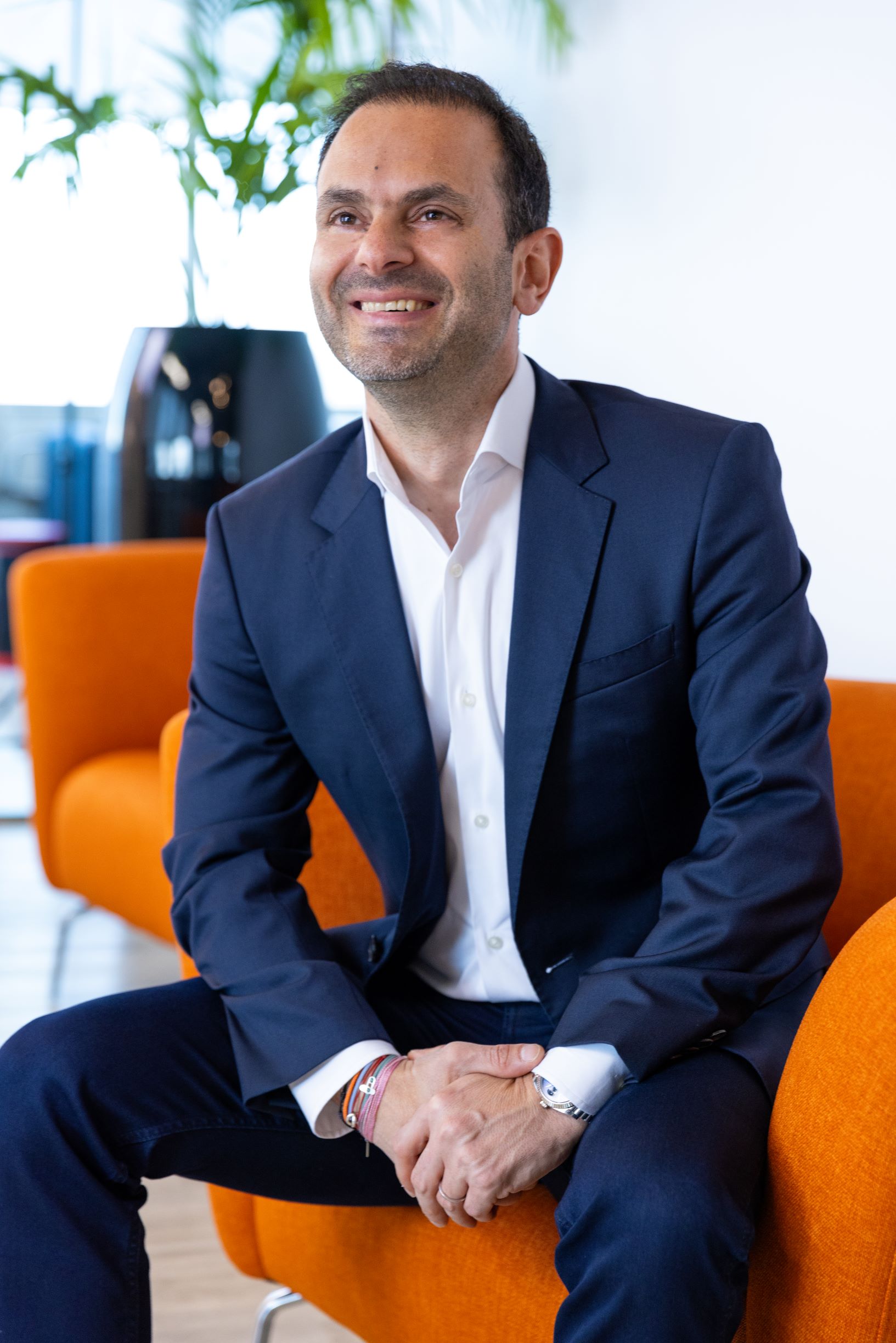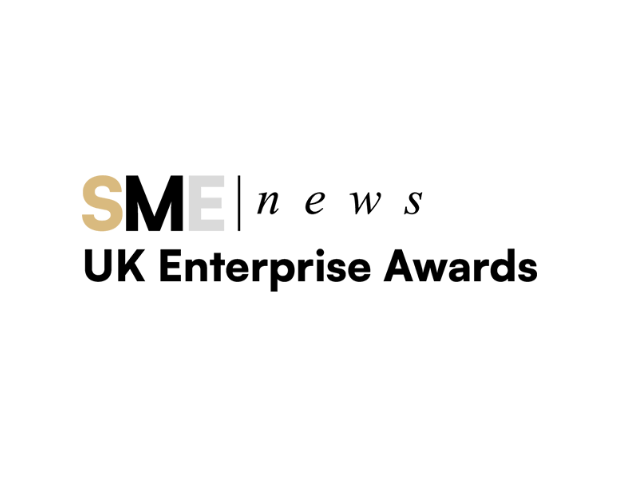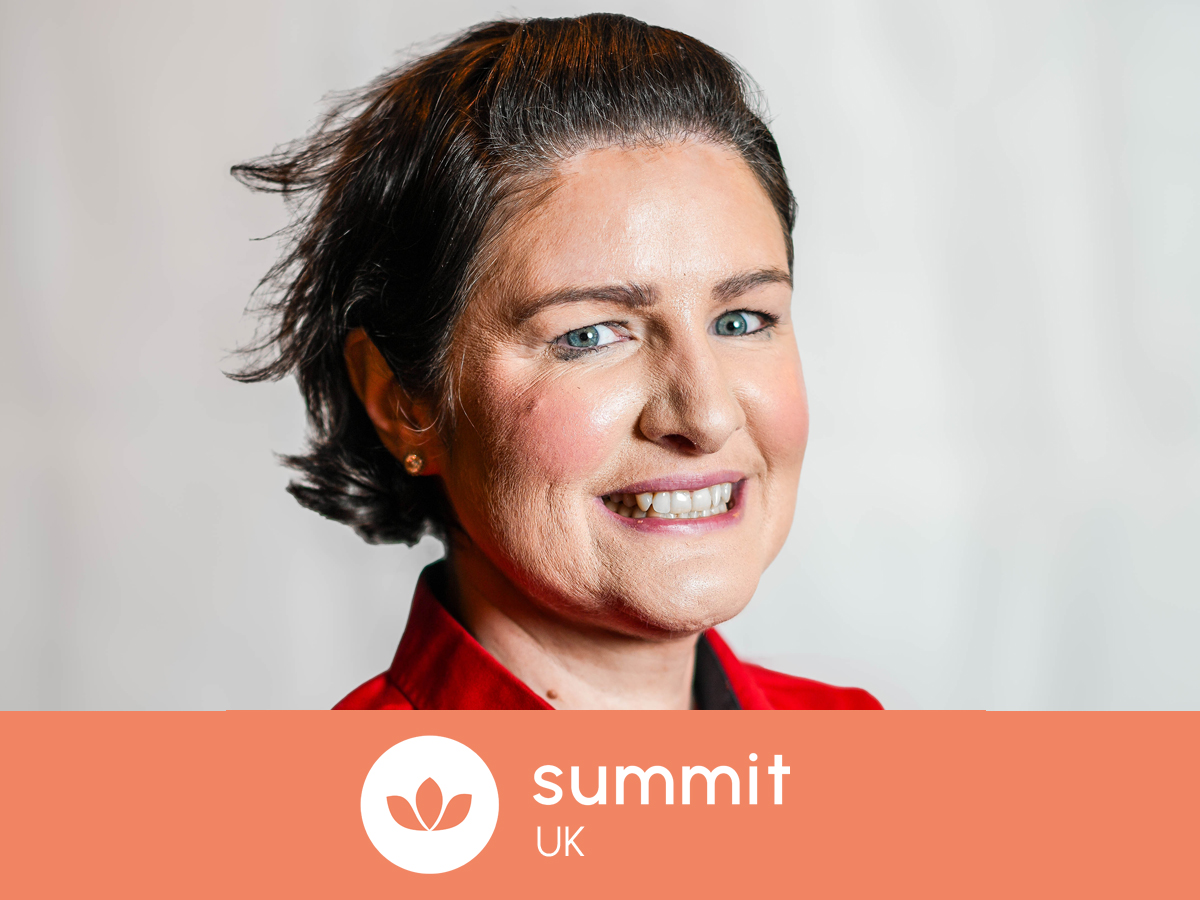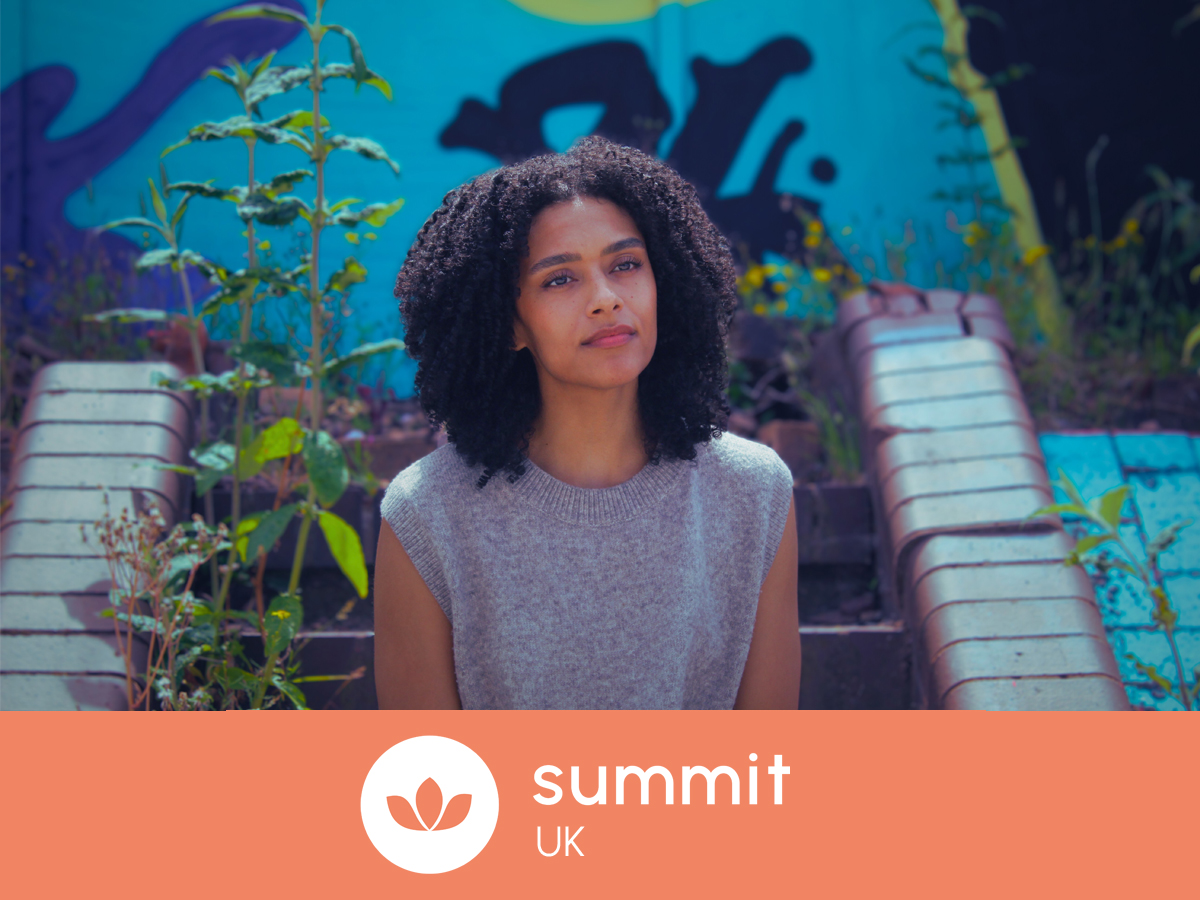
With a distinguished career spanning more than two decades in the media industry across MENA markets, Amer’s leadership philosophy centers on the belief that people are at the heart of every successful organization. His deep industry experience has shaped his unique approach to fostering a workplace where employee wellbeing is paramount. His stellar performance and sterling reputation stem not just from business achievements, but from his unwavering commitment to creating an environment where teams can thrive both personally and professionally.
We are delighted to announce that Amer will be speaking in Dubai this February as part of our Wellbeing at Work Summit Middle East. We caught up with him to find out how he’s feeling in the run up to the summit.
Hi Amer, we are thrilled you will be speaking at our Wellbeing at Work Summit Middle East in February. As a leader based in the region, what are the main challenges you are facing when it comes to employee wellbeing and mental health?
Every country or region has its own challenges, and it all goes back to the culture, society and work environment and work habits. The main challenges we always encounter would be related to :
Mental health remains a sensitive topic in the region due to cultural stigma. Employees are often hesitant to openly discuss mental health concerns due to fears of personal and social judgment.
Access to qualified professional counselling services in the region continues to be limited, creating barriers to proper mental health support.
Unlike other regions, the local work culture is characterized by intense expectations, including long working hours and a strong emphasis on endurance, persistence, and resilience, with limited acceptance of failure.
Geopolitical instability and economic fluctuations create ongoing uncertainties affecting job security, career progression opportunities, and financial pressures on both employees and organizations.
What strategies have you seen developing over the past 6 months, both internally and externally, that are moving the dial on wellbeing in the workplace?
We are blessed to be based in a region, especially the GCC, that is realizing life pressure, and acting on it. And what I like the most is that the governments and private sectors are learning from the advanced countries in this area and adopting and tailor making those regulations and practices to work for our culture. Many initiatives have been adopted, such as:
Government and Cultural Transformation Initiatives are being implemented across many GCC countries, including UAE’s Mental Health Law (2023), the Minister of Happiness role in UAE, Sharjah’s 4-day work week, similar discussions in Saudi Arabia, and KSA’s National Mental Health Program (2023).
At private sector and organizational levels, numerous Leadership Mental Health Training programs are being conducted, starting with today’s event, creating awareness across MENA markets including Saudi Arabia, UAE, and Egypt.
Organizations are increasing their focus on training leaders to recognize mental health signs and create healthy work environments. They work closely with HR teams to develop emotional intelligence and empathetic leadership skills, while encouraging open dialogues about mental health and stress management.
Insurance programs now cover mental health wellness, offering personalized plans that recognize individual employee needs, sometimes including free digital platforms for 24/7 mental health support and resources, or one-to-one sessions with professional consultants.
More flexible working arrangements are implemented across almost all organizations especially post COVID, including recognition of individual productivity rhythms, increased vacation allowances, mental health days, sabbatical options, and more.
These strategies reflect a growing understanding that employee wellbeing is crucial for organizational success and individual performance.
Why is employee wellbeing so important to you personally?
We work in the service industry, where our employees are our main assets.
It’s not just about the numbers – it’s about recognizing the human behind each role.
I’ve seen firsthand how mental health and overall wellbeing directly impact not just individual performance, but the entire organizational ecosystem.
When employees feel supported, valued, and cared for, they bring their most authentic, creative, and engaged selves to work. They become more innovative, collaborative, and committed to the organization’s success.
I’ve personally witnessed great talent experiencing professional burnout due to mental pressure driven by social demands and workload.
I firmly believe that when you’re in the right headspace – whether at home, at work, or during your commute – you’ll excel in everything you do. This is why even with the best talent, without attention to their mental wellness, you’ll lose their potential and eventually your team – the main asset in our industry.
What impact is AI having in your organization and how are you managing that?
AI has a multifaceted impact on workplace wellbeing, presenting both opportunities and challenges.
The main positive contribution from AI is workload management. AI tools and platforms are helping our teams offload day-to-day tasks that require more operational execution and less strategic thinking.
It plays a great role in learning and development within our HR systems, creating personalized learning paths and tailored training programs that adapt to individual learning styles.
At the same time, the challenges are numerous, and we must remember that as humans, change is always challenging.
Despite the automation benefits that AI brings to our workload ecosystem, there are ethical considerations we must address. This is why we ensure we develop clear AI usage guidelines, maintain privacy and data protection, conduct regular ethical AI checks, and prevent over-reliance on AI that could neglect the human touch in our service and products.
Being at such an event, it’s important to highlight the job anxiety AI is creating among employees across all levels. Transparent communication about AI’s role as a tool, not a replacement, is critical to our people. Reskilling and upskilling programs on AI usage are a priority, and as a group, we are investing millions of dollars in these training programs.
The goal is to leverage AI to enhance, not replace, human potential and wellbeing.
Other than AI, are there any challenges that you are seeing for the first time and how are you addressing them?
We’re experiencing several challenges that used to be emerging just a few years back and specific to our region, but they are no longer alien to us and are becoming more global rather than regional.
Generation talent dynamics are different nowadays. The new generation has fundamentally different expectations about work, seeking purpose-driven roles more devoted to work-life integration.
They rightfully value mental health and personal growth over traditional career trajectories that I used to pursue as a junior. Are they right or wrong? I believe it is a generational evolution, and I always say, I wish I had their mentality when I was their age. If I had experienced the same cultural and work dynamics when I was young, I would have requested and demanded the same.
Globalization in the workplace and talent migration are other pressures we face daily. People mobility is becoming a prerequisite in our work environment. With market and culture shifts, you need to ensure your team doesn’t feel alien to their new environment and can adapt quickly.
Maybe 6 years back, we used to talk about how the new generation was hooked to digital screens. Nowadays, even my mom in her mid-70s is on her mobile more than 5 hours a day. Digital fatigue and screen time are increasing and putting mental and health pressure on all of us – not only through screen impact on our mind and brain but also through social media interaction creating social pressure and demands on every individual.
What areas do you think employers should be focused on over the next 12 months?
As GroupM and as the group CEO, our focus is on implementing practices that foster the best culture for work-life satisfaction, which requires ongoing adjustment and regular evaluation of priorities to ensure alignment with changing life circumstances and goals, while creating environments where employees feel safe discussing challenges.
We read a lot nowadays about global CEOs challenging the concept of work-life balance. Jeff Bezos and Satya Nadella for example call it work-life harmony, which for me are all saying the same thing. As long as you manage your life in a way that makes you feel happy and willingly come to the office to enjoy your role, this is the work-life satisfaction that, as a leader, I am looking to achieve among the majority of our people.
In my opinion, it all boils down to fostering a purpose-driven culture in your organization, built around transparency, engagement, and commitment, while not forgetting to create truly inclusive and diverse workplace cultures that advance beyond traditional DEI metrics.
As I mentioned in my previous answers regarding people’s job anxiety, skill transformation and continuous learning are crucial as well for any generation in the workforce. Proactive reskilling and upskilling initiatives are a key focus for GroupM. We are developing and using adaptable online learning platforms, creating personalized learning journeys for our teams and future leaders, and investing in AI and technological literacy programs, as this is the future we foresee in our industry and any other industry in the near future.
How has your organization been leading the way?
Our group invests hundreds of millions of dollars in people every year, as they are the drivers of our business. To be a successful group, our team must be appreciated and looked after.
Through WPP Learning platform, “GroupM University,” and our “Wellbeing MENA Coach” Isa Qanati, we offer:
- Online and in-person workshops covering burnout, resilience, and stress management
- Relaxation, meditation, and mindfulness techniques
- Weekly motivation sessions
Our “Wellbeing & Mental Health Allies program” enables trained employee volunteers to support others with their mental health. They learn:
- Mental health fundamentals
- Non-judgmental listening skills
- How to direct people to appropriate services and resources
- Safety protocols for mental health support
Globally, we offer a day off during “World Mental Health Day” on October 10th to all WPP employees, providing:
- Time to disconnect from work
- Opportunity to focus on personal wellbeing
- Complementary webinars and workshops throughout the month
Our “Employee Assistance Programme (EAP)” is designed to help employees manage and prevent challenges in both work and personal life, offering free and confidential counseling and support for employees and eligible family members.
WPP provides free access to the “Headspace” app, a global leader in mindfulness and meditation.
Through our insurance broker “Lockton,” we offer:
- Regular webinars and in-person events on various themes
- Full health check-ups for all employees
- Educational sessions on stress management, parenting, coaching, menopause, and breast cancer awareness
“YourBridge” mentorship program is available to all GroupM employees, providing support and guidance for professional development and wellbeing.
In addition to these global and local platforms and trainings, I have made it a personal commitment to meet face-to-face with all 650 employees voluntarily across our 10 markets. During these sessions, employees can openly and transparently discuss their concerns, and I ensure to provide immediate or post-meeting feedback to any concerns or requests shared. I am proud to see this behavior and personal initiative cascading down to my direct team and their teams, becoming a group-wide trend of open communication without personal judgment. This practice will continue until everyone feels comfortable opening up and being receptive without pre-assessment or judgment.
Amer will be speaking in Dubai at the Wellbeing at Work Summit Middle East which takes place in Riyadh, Dubai, Cairo and virtually. Further details on the Summit can be found here.



